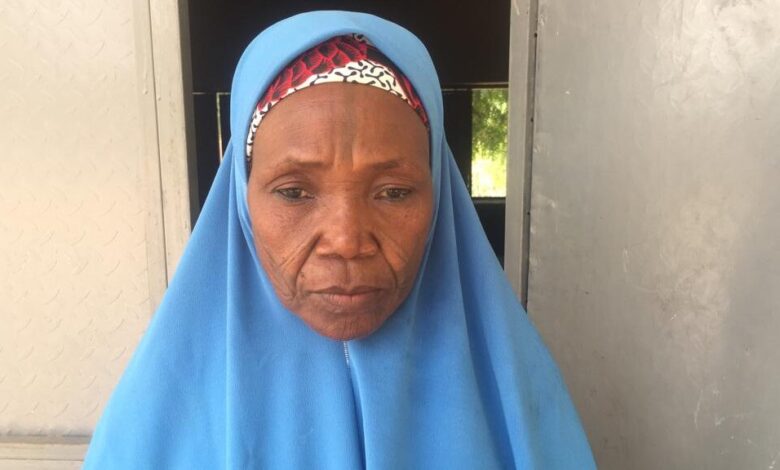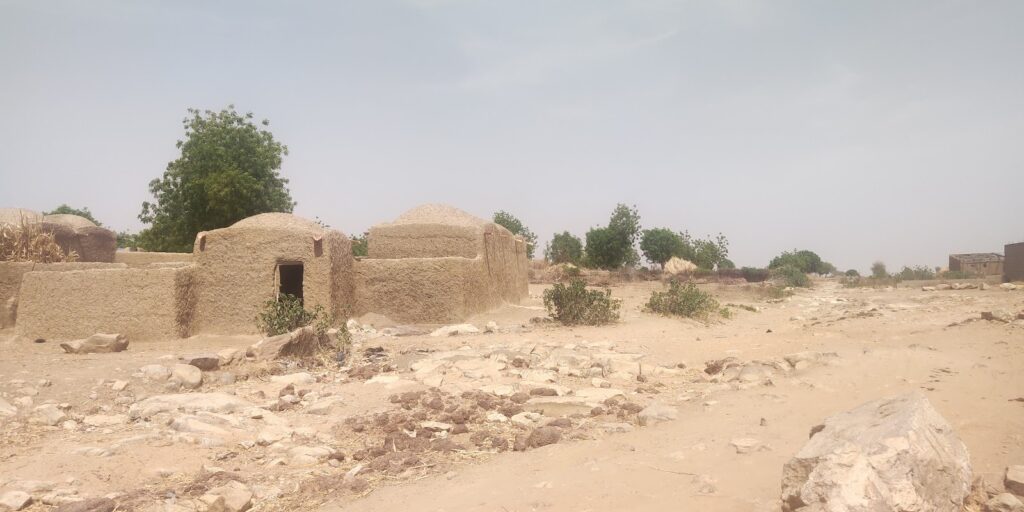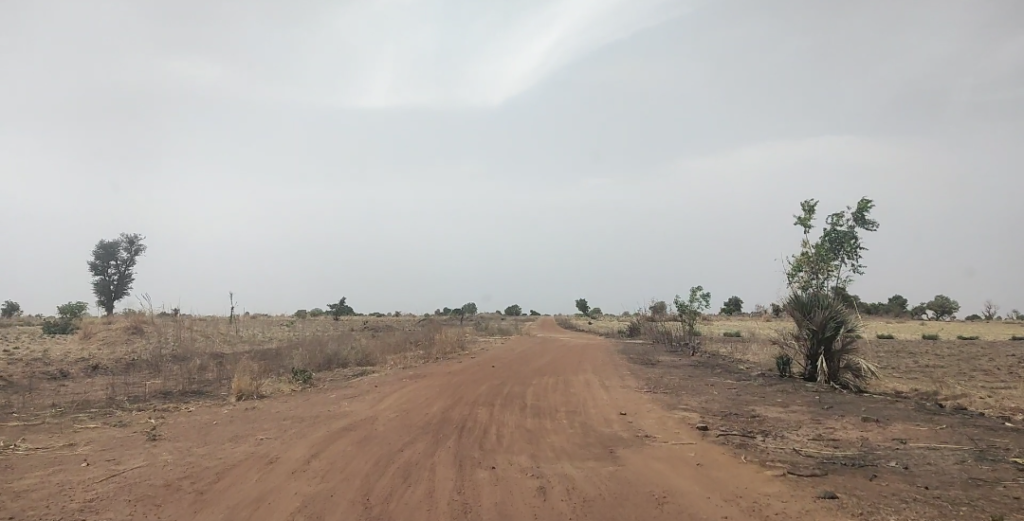Widowed By ‘Bandits’ (2): The Zamfara Women Who Lost Loved Ones To Terror Invasions
Many women who lost their husbands to the activities of terror groups in Northwest Nigeria remember their late partners fondly and are finding it difficult to cope with their absence.

Maliya Isa, 50, looks sober as she reflects on what she says is the most difficult experience she has had. It was the day her husband, Ahmed Isa, was killed by terrorists, often described locally as bandits.
Ahmed, 62, was killed during the Oct. 27, 2021, attack on Yanbuki village in the Zurmi Local Government Area of Zamfara.
Residents told HumAngle the village had been attacked by terrorists six times in the last seven months, killing scores of people. No security personnel came to their rescue during the repeated attacks, so they were forced to pay a “protection levy” to the terror groups.

Yanbuki and three other villages reportedly paid over ₦5 million to the terrorists in Dec. 2021 to avoid attacks. “Perhaps my husband would have been spared if they demanded tax payment from us early enough. Many already lost their lives to bandits’ deadly operations before they started demanding levy from us,” said Maliya.
‘It’s all so painful’
For over 20 years of their marriage, Maliya said her husband never left his family for long travel. She never had a ‘plan B’ nor could think of a night without Ahmed sleeping at home. “He dedicated his life to the happiness of his wife and children,” the widow said.
“My husband was not sick and didn’t die of an unknown illness. He was deliberately killed by bandits while retiring to bed last year. Ahmed was coming from the mosque and already greeted people in the community goodnight when bandits arrived. It was the worst day of my life and I feel shattered anytime I hear the word bandits. I feel I am going to die from the shock of witnessing the killing of my husband.”
Maliya wanted a love such as what she had with Ahmed forever but, she said, the terrorists have condemned her to a lifetime in darkness.
“It’s so silly but real. Ahmed is no more. It’s all so painful. If I could magically bring him back, I would. I’d wish for it and wait by an open window,” Maliya said and then paused. By this time, beads of sweat had settled on her forehead.

With the income from his work as a barber, Ahmed provided for his wife’s and seven children’s basic needs. None of the children is old enough to earn a living, so they now beg for alms.
“All my children are too little to engage in manual work. They are too weak to go for labourers. They beg for alms which is always added to the little income I make from the farm to buy food and provide them with clothes.”
Maliya could not hold back her tears when asked about what Ahmed wanted for his children. She said he never supported child labour and was always preaching that children have rights to western or Islamic education. But, she added, “the children cannot go to school or Arabic lessons because they have to look for what to eat. My children are not happy about their father’s death. They want to know the killers but I always calm them down to exercise patience and leave everything to God.”
Tearful Balikis
Many months after her husband was killed, Balikis Adamu, 50, has constantly been in a depressed mood. She and Yusuf had been together since 1980 and have 10 children together.
Late Yusuf worked as a shoemaker. As Balikis tried to speak about his death, she was choked with tears, explaining that sadness travels through every cell of her body when she remembers the incident.

“My husband was the first person bandits met when they attacked our village six months ago. He tried running for his life but could not because the terrorists were more than him. Aside from being a shoemaker, he usually goes to a farm to fetch firewood so he could make additional money. His death was a shock.”
The widow said she didn’t cry immediately her husband was killed but a deep ache settled into her joints and her muscles shivered like she had run too far without water. She later wept at night when one of those who paid a condolence visit to her quietly pronounced, “You’re a widow now.” It was the statement that made it all settle in.
“I woke up the next morning to the sound of wailing. I remembered how I started my life with my husband. Before then, I had already lost six of my 10 children to illness and now bandits killed the man who was usually consoling me anytime I thought of my late children. From the day of the incident, I started sleeping in our bed alone,” she said tearfully.
Yusuf had the habit of teaching his children good morals and religious tenets every morning so they “wouldn’t go astray”. It’s one of the things she would miss.
“I am enduring because I don’t have the power to bring him back. We have no option but to accept our fate. My oldest son is 20-years-old and he is fast playing the role of a father, with the shoe-making job he inherited from him and that’s what we feed on. We are just praying to God to keep us alive. The comfort we lose after the death of my husband is unbearable. No matter how best we try, it cannot be compared to when he was alive.”
‘He was killed for being a vigilante’
Sekinat Sanusi, 25, said her husband, Musa, was one the members of the community’s vigilante group. He was on duty when terror groups unleashed a midnight attack on the village.

He was killed by terrorists who came, riding motorcycles into the troubled village in Aug. 2021. HumAngle learnt that the incident led to the death and displacement of many residents of Yanbuki.
Some of the people killed, like Musa, were residents who went out to defend the community after hearing gunshots. Since his death, Sekinat has been struggling to care for the five children Musa left behind.
“He died trying to secure his village,” she said bitterly. “I cry everyday because I have known him since I was 17-years-old.”

Sekinat has made efforts to re-marry on two occasions due to poverty but no man is willing to adopt her five children. “The men asking me out are saying they don’t have the resources to marry me with the children. We are surviving by chance and with the help of my late husband’s younger brother.”
Support Our Journalism
There are millions of ordinary people affected by conflict in Africa whose stories are missing in the mainstream media. HumAngle is determined to tell those challenging and under-reported stories, hoping that the people impacted by these conflicts will find the safety and security they deserve.
To ensure that we continue to provide public service coverage, we have a small favour to ask you. We want you to be part of our journalistic endeavour by contributing a token to us.
Your donation will further promote a robust, free, and independent media.
Donate HereStay Closer To The Stories That Matter




